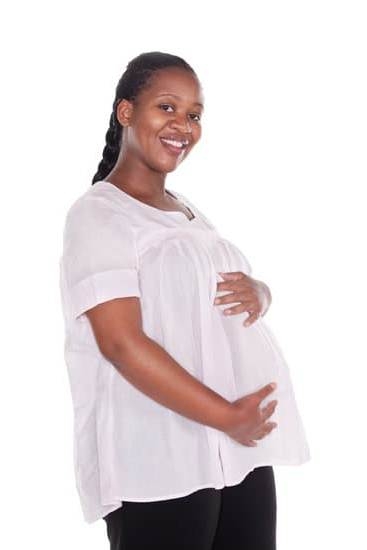How soon can pregnancy be detected? Understanding the early signs of pregnancy is crucial for women who are trying to conceive or who may have concerns about their reproductive health. From the science behind early pregnancy detection to the home pregnancy tests and early symptoms, there are various factors that play a role in determining when a pregnancy can be accurately detected.
In the first few paragraphs of this article, we will explore the timeline of early pregnancy detection and the key indicators that women should be aware of. We will delve into the science behind hCG levels and how they are measured, providing insight into the biological processes that occur in the body during the earliest stages of pregnancy.
The article will also address home pregnancy tests and how they work, shedding light on when they can accurately detect pregnancy. Additionally, we will discuss early symptoms such as nausea and fatigue, which are often telltale signs of early pregnancy. By understanding these indicators, women can better navigate their reproductive health and make informed decisions about their next steps.
The Science Behind Early Pregnancy Detection
The human chorionic gonadotropin (hCG) hormone is produced by the placenta during pregnancy and is responsible for maintaining the production of essential hormones like progesterone. Understanding hCG levels and how they are measured can provide valuable insight into the earliest stages of pregnancy detection.
hCG levels rise rapidly in early pregnancy, doubling every 2 to 3 days in the first few weeks. This hormone is crucial in sustaining the early stages of pregnancy and can be detected through blood and urine tests. Blood tests can detect hCG levels as early as 8 days after ovulation, while urine tests can detect hCG levels about 12-14 days after conception.
Measuring hCG levels is a critical part of confirming and monitoring early pregnancy. It’s important to note that individual hCG levels can vary widely from woman to woman, so healthcare professionals use a range of normal hCG levels rather than a specific number. Additionally, factors such as the timing of implantation, multiple pregnancies, and fertility treatments like IVF can impact hCG levels and how soon pregnancy can be detected.
| hCG Level Detection | Timing |
|---|---|
| Blood test | As early as 8 days post ovulation |
| Urine test | About 12-14 days after conception |
Understanding the science behind hCG levels and how they are measured provides women with valuable knowledge about the timing and accuracy of pregnancy detection. This information helps individuals make informed decisions about when to take a home pregnancy test or seek medical advice from healthcare professionals on their journey to parenthood.
Home Pregnancy Tests
Understanding Home Pregnancy Tests
Home pregnancy tests work by detecting the presence of a hormone called human chorionic gonadotropin (hCG) in a woman’s urine. This hormone is produced by the cells of the placenta shortly after the embryo attaches to the uterine lining. Most home pregnancy tests are designed to be used from the day your period is due. However, some tests are more sensitive and can detect pregnancy before your missed period.
When Can They Accurately Detect Pregnancy?
For most women, home pregnancy tests can accurately detect pregnancy about one week after a missed period. However, some tests claim to provide accurate results as early as five days before your expected period. It’s important to note that testing too early may result in a false negative, which means the test may show negative even if you are pregnant. In such cases, it is recommended to retest a few days later or consult with a healthcare professional.
Understanding False Negative Results
Factors such as taking the test too early or not following the instructions properly can lead to false negative results. Additionally, diluted urine or certain medications can also affect the accuracy of home pregnancy tests. Therefore, it’s crucial for women to understand these factors and consider them when determining how soon pregnancy can be detected at home.
Overall, while home pregnancy tests offer convenience and privacy, they may not always provide accurate results when used too early. Understanding how they work and when they can accurately detect pregnancy is essential for women who are trying to conceive or suspect they may be pregnant.
Early Symptoms of Pregnancy
Pregnancy symptoms can start as early as one week after conception. However, for most women, the early signs of pregnancy become noticeable around the sixth week of gestation. These signs can vary from person to person, but some common symptoms include nausea, fatigue, breast tenderness, and increased urination. It is important to note that these symptoms can also be associated with other conditions, so it is crucial to take a pregnancy test for confirmation.
Common Early Symptoms of Pregnancy Include
- Nausea or morning sickness
- Fatigue
- Tender or swollen breasts
- Increased urination
- Food cravings or aversions
It is essential to keep in mind that not all women will experience these symptoms, and some may only notice a few of them. Additionally, these signs can be mistaken for premenstrual symptoms or related to other health issues. In any case, if you suspect you might be pregnant and are experiencing any of these symptoms, it’s best to take a home pregnancy test or visit your healthcare provider for further assessment.
It’s important to note that every woman’s experience with early pregnancy symptoms is different. Some may notice these signs sooner than others due to variations in hormone levels and individual sensitivities. Additionally, factors such as age, overall health, and stress levels can also impact the onset and severity of these indicators.
Blood Tests
A blood test is considered the most accurate way to detect pregnancy in the early stages. Unlike home pregnancy tests that detect the presence of hCG in urine, a blood test directly measures the level of hCG in the blood. The hormone human chorionic gonadotropin (hCG) is produced by the placenta shortly after implantation occurs, and its levels steadily rise during the early stages of pregnancy.
How Do Blood Tests Work?
There are two types of blood tests that can be used to detect pregnancy: a qualitative hCG test and a quantitative hCG test. A qualitative hCG test simply confirms whether or not hCG is present in the blood, while a quantitative hCG test measures the exact amount of hCG present. These tests are typically performed at a doctor’s office or medical laboratory and require a small sample of blood to be drawn from a vein in the arm.
When Can Pregnancy Be Detected With a Blood Test?
Blood tests can detect pregnancy earlier than home pregnancy tests, sometimes as early as 6-8 days after ovulation. However, for most accurate results, it is recommended to wait until at least 7-12 days after ovulation or when your period is due before getting a blood test.
It’s important to note that early detection with a blood test may not be necessary for everyone, particularly for those with regular menstrual cycles. Always consult with your healthcare provider to determine the best timing for testing based on your individual circumstances.
Accuracy and Reliability
Blood tests are considered highly accurate and reliable for detecting pregnancy, with an accuracy rate of over 99%. They can also provide valuable information about the health of the pregnancy by measuring the level of hCG and monitoring its progression over time. If you suspect that you may be pregnant and want to confirm it as early as possible, discussing the option of a blood test with your healthcare provider is recommended.
Factors That Can Affect the Timing of Pregnancy Detection
For women who are trying to conceive, the timing of pregnancy detection can be affected by various factors such as irregular periods, fertility treatments, and more. Irregular periods can make it difficult to determine when a woman is ovulating and when her next period is due. This uncertainty can make it challenging to know when to take a pregnancy test and how soon pregnancy can be detected.
In addition, women who undergo fertility treatments such as in vitro fertilization (IVF) may have a different timeline for detecting pregnancy. In these cases, the use of fertility drugs and assisted reproductive technologies can alter the normal hormonal patterns that home pregnancy tests rely on for accurate results. As a result, women undergoing fertility treatments should follow their healthcare provider’s recommendations for when to take a pregnancy test after treatment.
Another factor that can affect the timing of pregnancy detection is the presence of certain medical conditions or medications. For example, women with polycystic ovary syndrome (PCOS) may have higher levels of the hormone hCG even when they are not pregnant, leading to potential false positive results on home pregnancy tests.
Overall, understanding how these factors can impact the accuracy and timing of pregnancy detection is crucial for women who are actively trying to conceive. By being aware of these considerations, women can make more informed decisions about when to take a pregnancy test and when to seek medical advice if there are concerns about early symptoms or irregular test results.
| Factors Affecting Pregnancy Detection | Description |
|---|---|
| Irregular Periods | Difficulty determining ovulation and period due dates |
| Fertility Treatments | Altered hormonal patterns from drugs and assisted reproductive technologies |
| Medical Conditions/Medications | Potential impact on hormone levels and test accuracy |
When to Seek Medical Advice
When it comes to detecting pregnancy, many women may experience anxiety and anticipation about the results of a home pregnancy test. Understanding the accuracy of these tests and knowing when to seek medical advice can be crucial in ensuring proper care and support during the early stages of pregnancy.
1. Understanding False Negative Results: It is important to acknowledge that home pregnancy tests are not always accurate, especially when taken too early in the pregnancy. A false negative result occurs when a woman is indeed pregnant, but the test shows a negative result.
This can happen if the levels of hCG (human chorionic gonadotropin) hormone – which indicate pregnancy – are not yet high enough to be detected by the test. It is essential for women to be aware of this possibility and consider retesting after a few days or seeking confirmation through a blood test at a healthcare facility.
2. When to Consult a Healthcare Professional: If a woman suspects she may be pregnant but receives multiple negative results on home pregnancy tests, it is advisable for her to consult with a healthcare professional.
Additionally, if there are concerns about irregular periods, fertility treatments, or other factors that may impact the timing of pregnancy detection, seeking medical advice can provide clarity and guidance. Healthcare professionals can conduct more sensitive blood tests to accurately detect hCG levels and confirm pregnancy.
3. Empowering Women with Knowledge: By understanding false negative results and knowing when to consult a healthcare professional, women can feel empowered in their reproductive health journey. It is important for them to know that they have support and resources available to them as they navigate the early stages of pregnancy detection.
By being informed about the accuracy of home pregnancy tests and recognizing when it may be necessary to seek medical advice, women can take proactive steps towards ensuring their well-being and receiving appropriate prenatal care if they are indeed pregnant.
Conclusion
In conclusion, understanding the early signs and symptoms of pregnancy and the different methods of detection can empower women to make informed decisions about their reproductive health. From home pregnancy tests to blood tests, there are various options available for women to confirm if they are pregnant.
The timing of when pregnancy can be detected can vary for each woman, but being aware of the factors that can affect this timing, such as irregular periods or fertility treatments, can help manage expectations.
It is important for women to know that they have the option to seek medical advice if they suspect they may be pregnant, especially if they experience false negative results from home pregnancy tests. Consulting a healthcare professional can provide further guidance and support during this crucial time. By understanding how soon pregnancy can be detected and the accuracy of different testing methods, women can take control of their reproductive health and make informed choices about their future.
Ultimately, empowering women with knowledge about the early detection of pregnancy and the options available to them is crucial in ensuring they receive the support and care they need. Whether it’s confirming a planned pregnancy or making decisions about unexpected results, having access to reliable information about early pregnancy detection is essential for women’s well-being and peace of mind.
Frequently Asked Questions
How Soon Will a Pregnancy Test Read Positive?
A pregnancy test can read positive as early as 10 days after conception, although it’s more accurate to wait until the first day of a missed period. This can vary depending on the sensitivity of the test and individual hormone levels.
Can Pregnancy Be Detected at 1 Week?
It’s very unlikely that pregnancy can be detected at 1 week after conception, as this is typically before a missed period. Most pregnancy tests are not sensitive enough to detect the low levels of hormone present in the early stages of pregnancy.
How Soon After Unprotected Can I Test for Pregnancy?
You can test for pregnancy as soon as 7-10 days after unprotected sex, but it’s recommended to wait until a missed period for more accurate results. However, there are some early detection tests on the market that claim to work even earlier than that.

Welcome to my fertility blog. This is a space where I will be sharing my experiences as I navigate through the world of fertility treatments, as well as provide information and resources about fertility and pregnancy.





